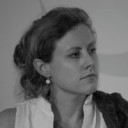Whether or not you believe in using cardinal points to describe developed and emerging countries, whether here in London we are in the North or the West, whether India is the South or the East, we can’t escape the ongoing discussion in the development world about what is termed North-South and now also South-South knowledge transfer. Being based in Europe enables me to network extensively with some great minds in the field of philanthropy, social entrepreneurship and development, but what inspired me a lot towards the end of 2011, and just last week at the two-day Philanthropy Bridge Foundation (PBF) meeting, was the opening up of opportunities for knowledge transfer between countries ‘of the South’.
The PBF meeting honoured the path-breaking work that Olga Alexeeva was driving when she so tragically died in July last year. Her passion was to use her extensive knowledge and experience building philanthropy in Russia to help philanthropy intermediaries in emerging markets. I feel that we have an exciting opportunity now in emerging economies to learn from each other and from more established philanthropy markets. We can avoid mistakes, maximise the plethora of tools that have been developed and really innovate in these exciting new landscapes.
In the Autumn, both Deval Sanghavi (our CEO) and I had the opportunity to plug into the Asian Venture Philanthropy Network roadshow in Mumbai, London and Turin, and Deval travelled to Singapore to understand the potential for Dasra to share its 12 years of work with the growing philanthropy and social enterprise sector there. Time out of the office gave us both a chance to look at the bigger picture and reflect on where we are in India.
A positive outcome that results from the incredible inefficiency that exists in India is that we have had to build alternative systems of support. 62 per cent of today’s charitable foundations in India were established in just the last 20 years, and in those years we benefited from an appetite and a freedom to build a very robust social system. Despite the obvious duplication and inefficiency that results from having a sector with over 3 million organisations, we cannot avoid celebrating the vibrant civil society that has developed. Some of the best social entrepreneurs and philanthropy models in the world exist in this vast landscape. We have much to learn, but we do also have much to share. Indeed in 2010 when Clinton was looking at successful food security programmes to replicate in Haiti, he turned to India and took Akshay Patra with him to see how they could replicate the Indian midday meal programme. A great example of South-South knowledge transfer.
Traditionally many of us in the social sector in India have automatically turned to Europe and the USA for ideas, support and inspiration, as these more mature markets have developed incredible track records and long-established programmes. We have benefited greatly from this knowledge and there is still plenty more to understand. We need to urge practitioners to share their mistakes and failures as well as their successful tools in order to really help us. Sometimes, however, it will be more appropriate to share our knowledge closer to home between countries that share more cultural and economic affinities. As Deval rightly points out, with his exposure to philanthropists across the region, what is becoming clear is that the mindset of Asian philanthropists is at a similar stage across the region. They are beginning to embrace the idea of supporting strategic philanthropy, but this is a new concept to many of them and they need a greater level of nurturing to really understand the issues we are asking them to invest in.
Deval was recently invited to Singapore, a country that many of us would not feel had great social needs, where he met with the Economic Development Board, who are interested in how they can develop a stronger social sector and keen to understand the successes in India to help them achieve their goals. While there he also met incredible social entrepreneurs who are supporting migrant workers and the underprivileged at home and beyond. These organisations have struggled to develop a structure that works for philanthropists and they were keen to learn from the Dasra model of giving and to explore the idea of our tried and tested Giving Circles to support their causes.
Dasra’s recent work in Bali is our first real foray into transferring our programs from India into South East Asia. A partnership between Dasra Social-Impact and the ALF Foundation has enabled a group of social entrepreneurs in Indonesia to benefit from our executive education programme for social sector leaders. We have been overwhelmed by how effective it has been and how easily we can translate the learning from India into a wider context. We now have our first batch of Indonesian graduates and it is exciting to think now of how an extended network of alumni can interact and social entrepreneurs from two countries who have completed the same programme can share contacts and experiences.
As the Asian philanthropy sector starts on its path to maturity we are also witnessing a growing number of philanthropic organisations and networks being created throughout the region and these provide incredible opportunities to share knowledge. Later in the spring, in Singapore, many of us will be attending an impact investing event, and a regional conference looking at philanthropy in the region is being planned for the second half a the year. These are great opportunities for us to support each other and ensure we are bringing best practice to the table to build a robust sector.
As many parts of the Western or Northern world (whichever cardinal point you prefer!) go through a period economic uncertainty that will see a reduction in international aid coming to India and other Asian nations, it makes sense for us to be more independent and to look to our neighbouring countries for support, but with a backdrop of invaluable advice and support from friends in the US and Europe. When Olga founded Philanthropy Bridge Foundation one of the key metaphors the bridge represented was that of a bridge between philanthropists, especially in emerging markets, and some of the most deserving but hard-to-fund issues across the world, like human rights. However, what came out of the meeting this week was that her legacy is also a bridge between the various experts in philanthropy development who have been working across the world and who are now determined to support one another and transfer knowledge that can hopefully fast-track a whole new group of philanthropists into catalytic giving.
Alison Adnitt is director of investor relations at Dasra







Comments (0)